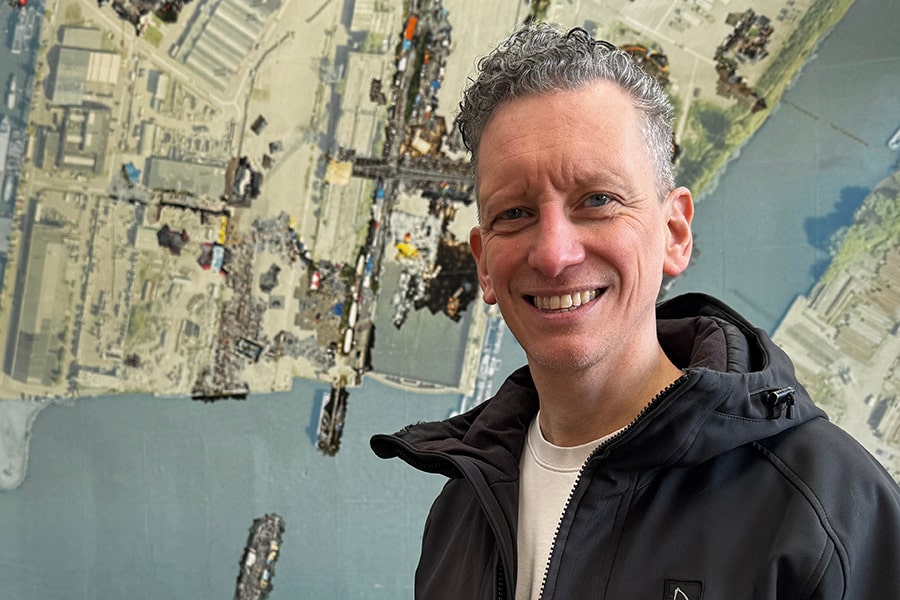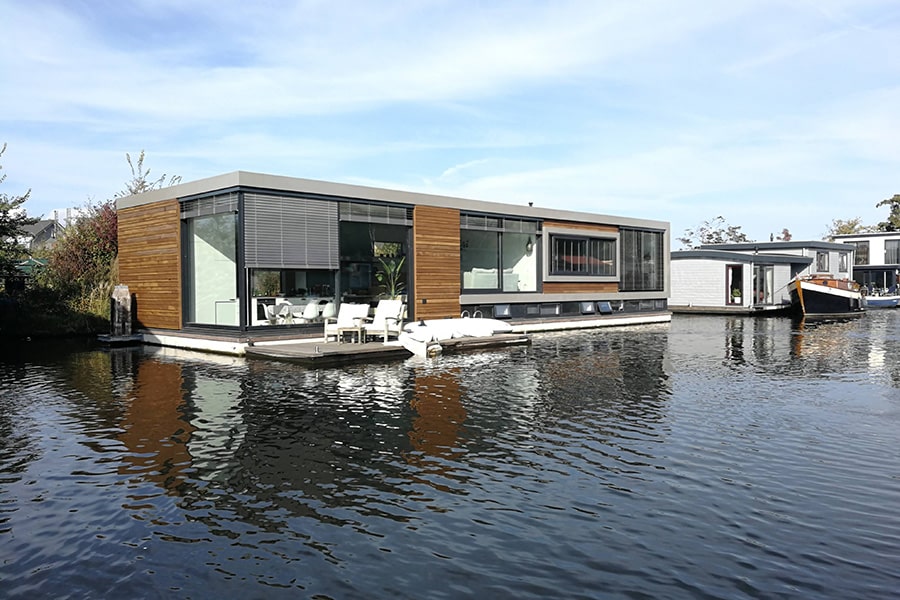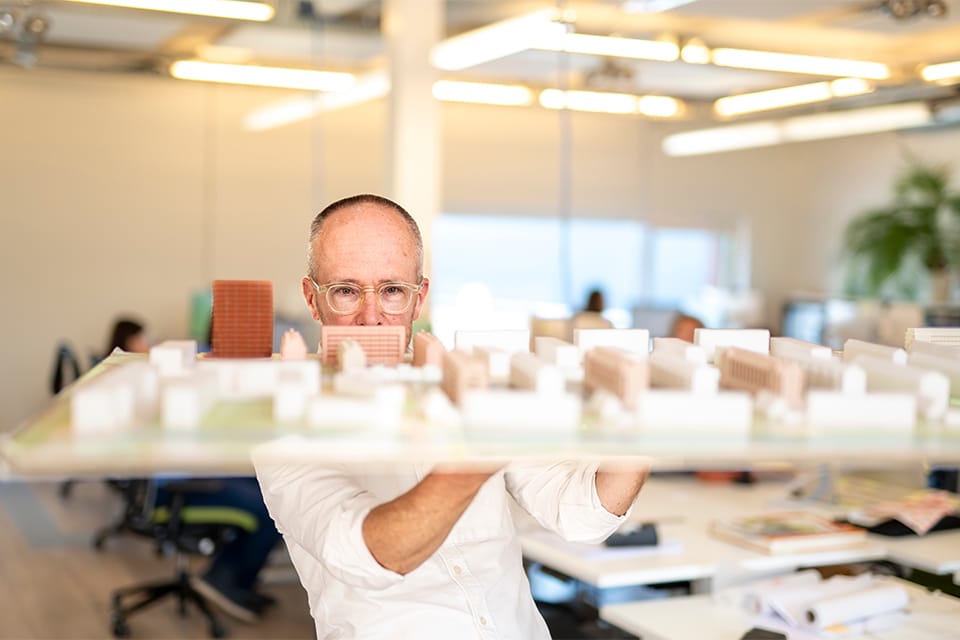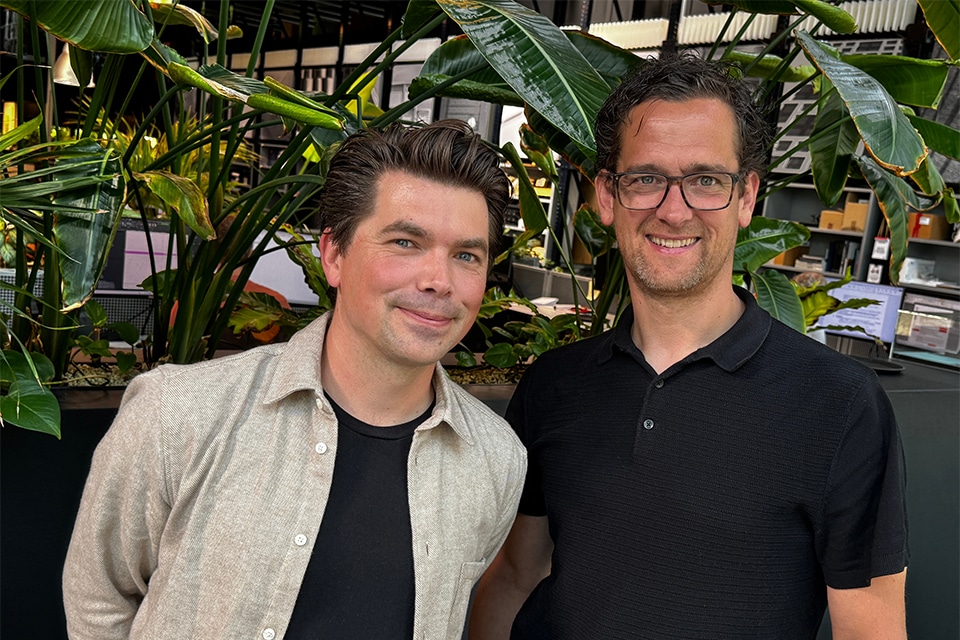
'Policy officials should focus more on the knowledge and expertise from practice'
Architect speaking
Every architect has to deal with laws and regulations (what's new?). Especially if the projects to be developed are complicated. Amsterdam-based waterhome architect Anton Surink therefore has a lot to do with the government in his work. That "cooperation" is sometimes difficult. "One authority is usually not aware of regulations that the other authority has to comply with. That often makes it very complicated for us. I'm often frustrated about that."

The 45-year-old entrepreneur, based with his agency in the large NDSM shed in Amsterdam North, regularly wonders what policymakers base their policies on. "They often don't know what they are talking about," he states. "I'll give an example. And that concerns a case at a municipality where a decision had to be made on a permit based on a legger profile. That is, as it were, a cross-section of the water: what does the water bottom look like on site? In this case, officials were looking at a source of information from sometimes more than 10 years ago. But in such a period of time, a shelf profile can look very different, and the shelf was established at the time based on different information needs. They never check that it is correct. They think, for example, that a kilometer away in a water the profile is identical. So it often is not. In short, a lot of carelessness which leads to delay and hassle."
Knowledge and skills
"I would therefore - and I think this is also true for many other architects - like to sit down with a policy maker more often. But that is difficult. And a missed opportunity, because the Dutch government lacks relevant knowledge and expertise from the business community as a result. Communication is difficult. Too often the government says, "Figure it out. Moreover, I see that municipalities often implement laws and regulations in their own way or view. The Environment Act, for example. It is quite complicated. For example, the municipality of Amsterdam has hardly any contact with the business community about this, while the municipality of Maastricht chose to have a lot of discussion with the business community. Up to intensive knowledge sessions with each other. Fine! But it remains strange that there is no overall plan or concept of how this implementation of laws and regulations should proceed."
Not surprisingly, Anton is lobbying for the government to come out of its shell. "I sit on the board of the houseboat association Amsterdam. There I have environmental permits in my portfolio and I regularly speak to the standards committee. I then try to bring matters into the limelight with officials, simply because their plans and ideas often do not match reality and practice. Often there is not enough knowledge and expertise among handling officials about waterfront housing and everything that comes with it. Still, the staff must test the matter. This often causes delays and misunderstandings."
3 opinions
Anton therefore has three urgent pieces of advice for the government. "First: above all, listen to each other internally. There is now too much work going on past each other and dare to ask critical questions within your own organization. Break through the prevailing hierarchical structures. Second, as I said before, involve the business community in making policy. Just invite some people. All architects have networks and knowledge. Take advantage of that. And third: focus on sustainability. We must dare to excel more in that. All the plans that were there should be pushed to extremes and not scaled down. After all, that is our great opportunity on the world stage.




